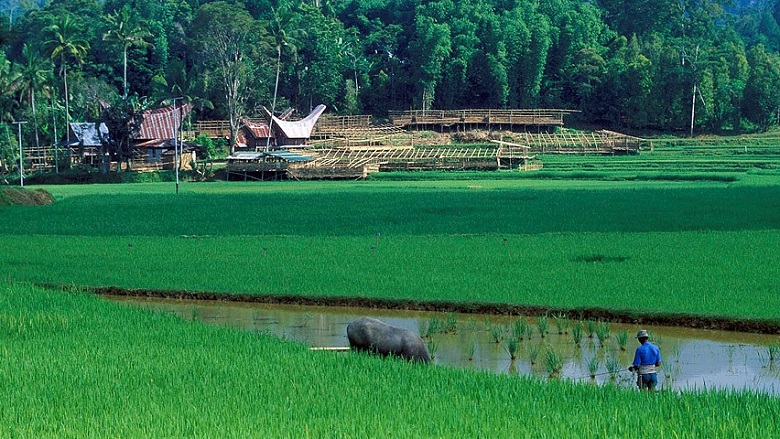Sustainable Finance is the process of taking due account of environmental, social and governance (ESG) considerations when making investment decisions in the financial sector, leading to increased longer-term investments into sustainable economic activities and projects (European Commission). It has become a powerful movement led by regulators, institutional investors and asset managers globally.
Sustainability, however, is a complex and evolving topic. The World Bank Group long-term finance unit has been at the forefront of promoting Sustainable Finance globally – though data provision, analytical work, instrument design and technical assistance to support regulators and investors in our client countries to ‘green’ their financial systems.
The team’s work on sustainable finance contributes to several initiatives - namely:
1. The Global Program on Sustainability which promotes the use of high quality-data and analysis on natural capital, ecosystem services and sustainability to better inform decisions made by governments, the private sector and financial institutions. The GPS program consists of 3 key pillars:
Pillar 1: Information-improving global measurements of natural capital and ecosystem services
Pillar 2: Building countries capacity to produce and use natural capital accounting for policy and planning decisions. It currently works with 18 countries to measure and value natural resources
Pillar 3: Incentives- Promoting research on how environmental Factors impact risk and financial return in fixed income markets.
Below is a sample of recent publications contributed to the GPS Knowledge Center including:
- A new Dawn: Rethinking Sovereign ESG
- Riding the Wave: Navigating the ESG landscape for Sovereign Debt Managers
- Demystifying ESG, Paving Path: Lessons from Chile’s Experience as a Sovereign Issuer for Sustainable Actions
- Unlocking Private Finance for Nature
2. The Sovereign ESG Data Portal is part of the work supported by the Global Program on Sustainability (GPS), which aims to provide governments and investors with information and tools that improve their understanding of sustainability criteria, including through natural capital accounting.
3. Climate Support Facility is a new flagship trust fund which was launched on December 10, 2020. The facility manages funding provided under a Green Recovery Initiative aimed at helping countries building a low-carbon, climate-resilient recovery from COVID 19. Germany, the United Kingdom and Austria are its first contributors. The facility support technical assistance and advisory services. This new trust fund will:
- Embed specialized economic advisors in key government ministries to assist with climate-informed national recovery strategies;
- Help countries develop macroeconomic models that incorporate climate into national budgets, enhance their NDCs, and support the development of long-term strategies for decarbonization; and
- Generate new analytical work: including geospatial data on climate risk, the impact of COVID-19 on carbon emissions, and the effect of climate policies on jobs and livelihoods.
4. IFC Edge. An innovation of IFC, a member of the World Bank Group, EDGE (“Excellence in Design for Greater Efficiencies”) provides market leaders with the opportunity to gain a competitive advantage by differentiating their products and adding value to the lives of their customers. EDGE brings speed, market intelligence and an investment focus to the next generation of green building certification in more than 170 countries. IFC created EDGE to respond to the need for a measurable and credible solution to prove the business case for building green and unlock financial investment.
5. J-CAP is a five-year program initially focused on six priority countries and one sub-region: Bangladesh, Indonesia, Kenya, Morocco, Peru, Vietnam, and the West African Economic & Monetary Union. Going forward, the program will also work with other countries, including Argentina, to support local capital markets development.
Under the program, country-specific action plans have been produced that mobilize the World Bank’s technical assistance alongside IFC's demonstration transactions and local currency solutions. Support for green bond issuance and market development, as well as green regulatory frameworks are a core part of the program.
